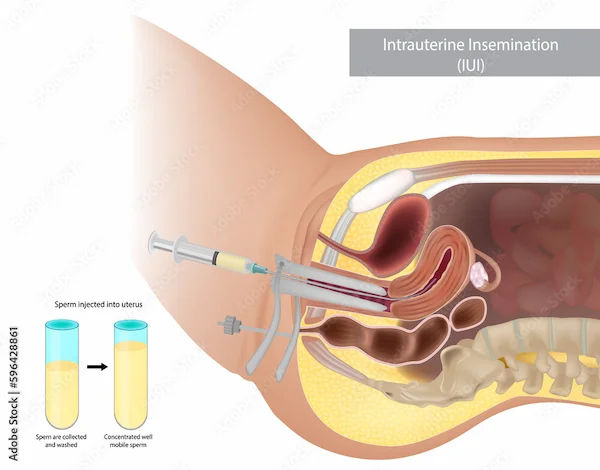Understanding Contractions During Pregnancy
Learn about contractions during pregnancy, including the difference between Braxton Hicks and true labor. Discover how contractions feel, when to go to the hospital, and tips for managing pain. Stay informed and confident as you prepare for childbirth.

Written by Dr. Shaik Abdul Kalam
Reviewed by Dr. Dhankecha Mayank Dineshbhai MBBS
Last updated on 11th Aug, 2025

Pregnancy is a beautiful journey, but it can also be overwhelming, especially when it comes to understanding contractions. Contractions are a natural part of pregnancy and childbirth, but they can be confusing; especially for first-time mothers. This article will help you understand what contractions are, the different types, and how to manage them effectively.
What Are Contractions?
Contractions are the tightening and relaxing of the uterine muscles, which help the cervix (the opening of the uterus) to dilate (open) and efface (thin out) during labor. Think of them as your body’s way of preparing for childbirth.
Types of Contractions
1. Braxton Hicks Contractions (False Labor)
- Often called "practice contractions," these are irregular and usually painless.
- They can start as early as the second trimester but are more common in the third trimester.
- Unlike true labor contractions, they don’t increase in intensity or frequency.
- They may go away with movement, hydration, or rest.
2. True Labor Contractions
- Regular and become stronger, longer, and closer together over time.
- Do not stop with rest or hydration.
- Often start in the lower back and move to the front of the abdomen.
- Accompanied by other signs of labor, such as water breaking or a bloody show (mucus discharge tinged with blood).
3. Preterm Labor Contractions
- Occur before 37 weeks of pregnancy.
- May feel like regular contractions but happen too early.
- If you experience frequent contractions, pelvic pressure, or unusual discharge before 37 weeks, seek medical attention immediately.
How Do Contractions Feel?
Every woman experiences contractions differently. Some describe them as:
- Menstrual-like cramps
- A tightening or squeezing sensation
- Pressure in the pelvis or lower back
- Intense waves that start mild and grow stronger
When to Go to the Hospital
It’s important to recognize when contractions mean real labor. Follow the 5-1-1 rule:
- Contractions are 5 minutes apart
- Each lasts for 1 minute
- This pattern continues for at least 1 hour
Other signs that you should head to the hospital:
- Your water breaks (a gush or trickle of fluid).
- You notice bleeding (more than light spotting).
- You feel decreased fetal movement.
Consult Top Doctors
Tips for Managing Contractions
At Home (Early Labor)
- Stay Hydrated: Dehydration can trigger false labor.
- Change Positions: Walking, rocking, or lying on your side may help.
- Relaxation Techniques: Deep breathing, warm baths, or massage can ease discomfort.
- Time Your Contractions: Use a stopwatch or app to track frequency and duration.
During Active Labor
- Use Breathing Techniques: Slow, deep breaths can help manage pain.
- Stay Upright: Gravity helps the baby move down the birth canal.
- Ask for Support: A partner, doula, or nurse can provide comfort.
When to Seek Immediate Help
Call your doctor or go to the hospital right away if:
- Contractions are extremely painful and sudden.
- You have vaginal bleeding (not light spotting).
- You feel dizzy, faint, or have severe headaches.
- Your baby is moving less than usual.
Need Expert Advice?
If you have concerns about contractions or pregnancy, you can book a consultation with an Apollo24|7 gynecologists for personalized guidance. Stay informed, stay relaxed, and trust your body; you’ve got this!
Would you like help finding a specialist or scheduling a prenatal check-up? Visit Apollo24|7 for easy appointments and expert care.
Conclusion
Contractions are a normal part of pregnancy, but knowing the difference between false labor and true labor can help you stay calm and prepared. If you’re unsure, don’t hesitate to contact your healthcare provider.
Consult Top Doctors
Consult Top Doctors

Dr Bhawna Garg
Gynaecological Oncologist
26 Years • MBBS, MS, (PGI MS ROHTAK) FELLOWSHIP GYNECOLOGY ONCOLOGY, (CANCER INSTITUTE CHENNAI)
Delhi
Apollo Hospitals Indraprastha, Delhi

Dr. Debashree Saha
Obstetrician and Gynaecologist
4 Years • MBBS, MS (Obstetrics & Gynaecology)
Kolkata
DR. DEBASHREE SAHA Clinic, Kolkata

Dr. Neetu Singh
Obstetrician and Gynaecologist
19 Years • MBBS , MD (Obstetrics & Gynaecology)
Ghaziabad
Mother And Kidz Clinic, Ghaziabad
Dr. Deepti Rastogi
Obstetrician and Gynaecologist
17 Years • MBBS, Diploma (Obstetrics & Gynaecology)
Ghaziabad
Navaanya wellness, Ghaziabad

Dr. Ritika Khurana
Obstetrician and Gynaecologist
16 Years • MBBS, DGO(GYNAECOLOGY AND OBSTETRICS)
Pune
Dr Rupali and Dr Ritika, Pune
Consult Top Doctors

Dr Bhawna Garg
Gynaecological Oncologist
26 Years • MBBS, MS, (PGI MS ROHTAK) FELLOWSHIP GYNECOLOGY ONCOLOGY, (CANCER INSTITUTE CHENNAI)
Delhi
Apollo Hospitals Indraprastha, Delhi

Dr. Debashree Saha
Obstetrician and Gynaecologist
4 Years • MBBS, MS (Obstetrics & Gynaecology)
Kolkata
DR. DEBASHREE SAHA Clinic, Kolkata

Dr. Neetu Singh
Obstetrician and Gynaecologist
19 Years • MBBS , MD (Obstetrics & Gynaecology)
Ghaziabad
Mother And Kidz Clinic, Ghaziabad
Dr. Deepti Rastogi
Obstetrician and Gynaecologist
17 Years • MBBS, Diploma (Obstetrics & Gynaecology)
Ghaziabad
Navaanya wellness, Ghaziabad

Dr. Ritika Khurana
Obstetrician and Gynaecologist
16 Years • MBBS, DGO(GYNAECOLOGY AND OBSTETRICS)
Pune
Dr Rupali and Dr Ritika, Pune




